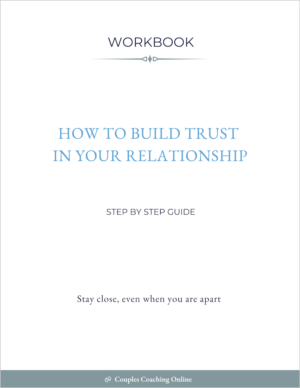Finding Joy Together: A Deep Dive into Relationship Satisfaction

Ever feel like your relationship is on autopilot, wondering if there’s more to this whole “romantic partnership” thing? You’re not alone; it’s a question many of us ponder, seeking a deeper connection and understanding within our personal and intimate relationships.
At its heart, relationship satisfaction measures how content you and your partner are within your romantic relationship, touching on everything from emotional fulfilment to how well your daily lives mesh. It’s about feeling heard, valued, and deeply connected, and it significantly impacts both your happiness and overall life satisfaction. Ensuring future relationship satisfaction requires effort, understanding, and a willingness to address and navigate the ups and downs together.
This dive into the world of relationship satisfaction will unpack what it means to be truly satisfied with your partner and how it shapes our experiences in romantic relationships. We’ll explore actionable steps and strategies to enhance your relationship quality, ensuring that by the end of this read, you’ll have a clearer path toward cultivating a more satisfying and meaningful connection with your partner.
What is Relationship Satisfaction?
Understanding relationship satisfaction is pivotal in navigating the complexities of romantic relationships and marital satisfaction.
Definition and Significance
Relationship satisfaction is a comprehensive measure reflecting how well a relationship meets the emotional, psychological, and physical needs of both partners.
It encompasses various facets of a partnership, including communication quality, emotional connection, sexual satisfaction, and the ability to resolve conflicts effectively. This multidimensional concept evolves with time, influenced by life events, personal growth, and changes in individual needs and expectations.
A key aspect of relationship quality is the balance between giving and receiving, where both partners feel their needs are being met in equal measure. It’s about feeling heard, valued, and connected on a deep level. Marital satisfaction is often used interchangeably with relationship satisfaction in the context of married couples.
Factors contributing to relationship satisfaction include effective communication, which lays the groundwork for resolving marital interaction issues, and a strong relationship commitment.
Personal relationships are also impacted by individual differences and personality characteristics, making appreciation and respect for these differences a cornerstone of marital satisfaction and any other type of romantic relationship.
Theoretical Frameworks
Triangular Theory of Love
Developed by psychologist Robert Sternberg, The Triangular Theory of Love [1] posits that a truly fulfilling romantic relationship is built on three key components:
- intimacy
- passion
- commitment
Intimacy encompasses feelings of closeness and connectedness, passion refers to the physical and emotional attraction that drives a romantic relationship, and commitment involves the decision to maintain the relationship long-term.
This theory suggests that the highest form of relationship satisfaction is achieved when all three elements are present and balanced, creating what is known as “consummate love.”
Attachment Styles
Our early life experiences shape our attachment styles, which in turn influence how we interact in our intimate relationships. Originating from the work of John Bowlby and Mary Ainsworth, Attachment Theory [2] describes how the quality of the bonds we form with our caregivers can predict the dynamics of our adult relationships.
The four attachment styles, rooted in attachment theory are:
- Anxious (also referred to as Preoccupied)
- Avoidant (also referred to as Dismissive)
- Disorganized (also referred to as Fearful-Avoidant)
- Secure
A person with a secure attachment style tends to have higher relationship satisfaction, as they are comfortable with intimacy and are more resilient in handling conflicts. In contrast, a person with anxious or avoidant attachment styles might struggle with trust and closeness, impacting sexual satisfaction in their personal relationships.
The Research Insights on Marital Satisfaction
Marital satisfaction is influenced by many factors including personality traits, marital quality, and individual wellness of each partner.
Researchers, through extensive data analysis and meta-analysis, try to explain what it takes for people in romantic relationships to be truly satisfied. This exploration delves into how aspects like social psychology, behaviours, and facing divorce can impact the level of marital satisfaction.
Numerous studies have explored the factors that contribute to relationship satisfaction, shedding light on the importance of sexual satisfaction, shared values, and effective conflict resolution strategies. Research [3] highlights that marital satisfaction is not solely dependent on the absence of negative interactions but is significantly enhanced by the presence of positive behaviours and mutual support. Moreover, individual differences such as personality traits and life satisfaction levels play a critical role in the overall quality of romantic relationships.
A meta-analysis [4] of this study suggests that while there are common threads, the subjective experience of relationship satisfaction is highly individualized, influenced by a myriad of factors including social support, and life events.
Continuing our exploration, a wealth of data compiled by researchers worldwide has consistently illuminated the intricate dance of dynamics that define relationship satisfaction [5]. A study suggests, published by Cambridge University Press, that gender equality [6] plays a significant role in how satisfaction is both experienced and expressed within relationships.
This aligns with what many studies have shown: the importance of understanding the nuanced ways in which individuals navigate their personal relationships, often influenced by deeply ingrained societal norms and expectations.
New study findings further examine how these gender-related nuances impact the overall health of a relationship, offering fascinating insights into the ways men and women differently prioritize and value components of their partnerships [7].
Moreover, researchers have utilized various methodologies to explain the complex interplay of elements contributing to relationship satisfaction. Through rigorous examination, studies find that personal well-being, mutual respect, and effective communication are pivotal, irrespective of a person’s gender [8].
This body of research, underscored by numerous studies, serves not just to illuminate the diverse experiences of individuals in romantic relationships but also to guide future research into how these insights can be applied to improve relationship quality in married couples.
Key Factors Influencing Relationship Satisfaction

Each of these factors plays an important role in the overall relationship satisfaction. Reflecting on the questions and incorporating the tips we offer here, can help you develop a deeper, more fulfilling marriage where you and your partner can be truly satisfied.
1. Individual Well-being
Ever felt like the world around you is in harmony when you’re at your best? That’s the power of individual well-being spilling over into your romantic relationships.
Your happiness and health have a significant ripple effect on your romantic relationships. When you’re feeling good about yourself, it’s easier to contribute positively to your relationships.
When you’re mentally and physically healthy, your capacity to give and receive love is enhanced significantly.
Point of Interest: Regular self-care routines and hobbies can enhance your well-being but also bring fresh energy and new perspectives into your relationship. This could be as simple as a nightly walk, meditating together, or pursuing a shared hobby.
How do you ensure that the individual well-being of every person in this relationship is not sidelined?
2. Compatibility
Compatibility might sound like a buzzword until you experience those moments of effortless connection with your partner. It helps develop a deeper appreciation for one another.
Sharing core values, interests, and goals can profoundly impact how satisfied you and your partner are in your relationship.
How do you navigate your differences without compromising the harmony in your marriage?
Advice: Explore your shared interests and values. Spend time discussing your future aspirations and beliefs. It’s these shared visions that often strengthen the bond between partners.
Whether it’s your views on marriage, the value you place on personal relationships, or how you envision your future together, compatibility lies at the heart of every satisfying marriage.
3. Emotional Support
There’s a unique kind of comfort in knowing someone has your back. Emotional support from your partner can feel like a safe harbour in life’s storms, significantly impacting relationship satisfaction.
Feeling supported and understood by the other person builds a foundation of trust and safety between partners, helping them more effectively deal with issues like stress, anxiety or depression.
Guidance: Offer empathy and support to ensure your partner knows their feelings are valid and important. Make it a habit to check in on each other’s emotional states regularly. Offering a listening ear or a shoulder to lean on during tough times can make all the difference.
How do you show support when your partner needs you the most?
4. Communication
Ever noticed how a simple miscommunication can spiral into a major issue?
Open, honest, and effective communication is the cornerstone of any satisfying relationship. It’s not just about talking but also about sharing your thoughts and recognising each other’s perspective. Getting to learn more about your partner’s personality will help you explain why they behave the way they do.
Point of Interest: Practice open and honest communication, especially about topics like intimacy and expectations. Actively listen and express your thoughts and feelings constructively. Remember, it’s not just about talking; it’s about connecting.
How often do you feel truly heard by your partner?
For some guidance, consider our workbook on how to communicate better with your partner.
5. Emotional Intimacy
Emotional intimacy is what turns relationships into profound connections, enhancing relationship satisfaction in romantic relationships and marital satisfaction for those of us who are married.
Being emotionally intimate means sharing your deepest fears, hopes, and dreams.
Advice: Create a space where you and your partner can be vulnerable. A place where you know you can share your thoughts and feelings without judgment and encourage your partner to do the same.
When was the last time you shared something deeply personal with your partner?
6. Sexual Satisfaction
Sexual satisfaction is about connection, exploration, and expression of love. Sexual satisfaction is more than physical pleasure; it’s a form of communication that allows each partner to express their love and desire in a verbal and non-verbal way.
Guidance: Communicate your desire openly and be willing to listen to your partner’s expectations, needs and boundaries.
Are you able to maintain a fulfilling sexual satisfaction in your relationship? Do you feel comfortable expressing your sexual desire to your partner?
Our step-by-step guide is here to help.
7. Commitment and Trust
Commitment and trust form the bedrock of a lasting marriage. They’re the silent promises that say, “I’m here for you,” providing a foundation of stability and security.
Effective marital interaction is a cornerstone of a healthy and fulfilling marriage. Achieving a high level of marital satisfaction requires effort and commitment from each partner.
Mutual respect, effective communication, and shared values significantly impact marital quality and ensure that the marriage can withstand the tests of time.
Tip: Show your commitment through actions as well as words, and always strive to be a reliable partner. Trust is built in the small moments.
What actions do you take to show your partner they can rely on you?
8. Conflict Resolution
Disagreements in relationships are inevitable, but it’s how you deal with conflicts that can leave you satisfied with your marriage or lead to divorce. How you handle disagreements can significantly affect your marital quality.
Data Point: Approach conflicts with an open mind and heart. Seek to resolve issues constructively, and focus on solutions rather than dwelling on problems.
How did you handle your last disagreement?
9. Respect
Respect is about acknowledging your partner as an individual with their thoughts, feelings, and boundaries. Mutual respect involves valuing each other enough to want to hear what the other person wants to share.
Guidance: Always communicate with respect, even during disagreements.
Do you feel your partner values your opinion?
10. External Stressors
Life’s external stressors, be it work pressure, family obligations, or societal expectations, can strain even the strongest relationships.
Tip: Agree on how you will manage external stress together. Unite as a team to tackle external pressures, setting clear boundaries with work or family to protect your relationship’s peace.
How do you manage external stressors without letting them impact your relationship satisfaction?
11. Shared Responsibilities
Sharing responsibilities equitably not only ensures the smooth running of your daily lives but also contributes to a sense of fairness and teamwork in your marriage.
Advice: Communicate openly about the division of labour and be willing to adjust as needed. Viewing yourselves as a team facing tasks together can build a stronger union.
How do you ensure responsibilities are shared fairly? What impact does this have on your relationship satisfaction?
The Impact of Relationship Satisfaction on Personal Well-being

Have you ever paused to consider how the happiness of your relationship directly impacts your own well-being? Balancing marital satisfaction and personal well-being can help you unlock new levels of fulfilment.
1. Emotional and Physical Health
The link between emotional health and relationship satisfaction is profound.
When we feel secure and valued by our partners, it boosts our overall emotional resilience, helping us navigate life’s challenges with more confidence.
Data Point: Regularly express appreciation and affection. Acknowledging each other’s efforts and qualities strengthens emotional bonds. Engage in joint activities that are healthy and fun.
Have you noticed how your emotions influence your partner?
Many studies suggest that individuals who are satisfied in their relationships often experience less stress.
2. Self-Esteem
Your sense of self-worth can significantly benefit from a supportive and loving relationship. Knowing that someone values and loves you for who you are, contributes to a positive self-image.
Advice: Celebrate each other’s successes and be there to uplift during moments of doubt. This mutual support is key to increasing self-esteem.
How does your partner influence your self-esteem?
3. Sense of Belonging
Feeling like you belong is a fundamental human need. A satisfying relationship can fulfill this need, providing a sense of security and acceptance.
How does your relationship satisfy your need for belonging, and how do you celebrate your togetherness?
4. Resilience
A relationship where you are satisfied knowing you have a dependable partner can make you feel more capable of facing life’s ups and downs.
Advice: Share your fears and challenges with your partner, and work together to find solutions or coping strategies.
In what ways has your relationship or marriage made you more resilient?
5. Psychological Well-being
A satisfying relationship contributes to your psychological well-being by reducing anxiety, depression, and stress.
Guidance: Prioritize open communication about your mental health and support each other in seeking help when needed.
How did your relationship impact your life?
Focus on building a relationship where both you and your partner are satisfied.
By understanding and nurturing these aspects of your romantic relationship, you can enhance your personal happiness and improve your relationship.
How do you influence your marriage with your personality?
Navigating the path to future fulfilment involves understanding a range of critical elements, from the quality of our marital interactions to the influence of our broader social relationships. Social psychology and numerous studies shed light on how these elements contribute to our overall subjective well-being.
Key to this is the realization that marital quality, consistent efforts to nurture the bond, and the impact of our social networks, including parents and friends, play significant roles in shaping our experiences and expectations within romantic partnerships.
Research consistently highlights the importance of addressing these areas, with findings suggesting that how we manage these aspects of our relationships can profoundly affect how satisfied we are.
Practical Tips for Improving Relationship Satisfaction

Improve Communication and Resolve Conflicts
Every couple faces disagreements, but it’s how you handle these moments. Focus on finding common ground that respects your and your partners’ feelings and needs. Approaching conflict with empathy and a willingness to understand each other’s perspectives.
Advice: Focus on what you can learn from each disagreement instead of who’s right or wrong.
Can you share a time when resolving a conflict brought you closer to your partner?
Isn’t it true that sometimes, even with the best intentions, words can get lost in translation between you and your partner?
The key to unlocking future relationship satisfaction lies not just in what we say but how we listen.
Commit to truly hearing each other out, beyond the words, understanding the feelings, needs and intentions. Try sharing not only your day-to-day experiences but also your dreams and fears. Focus on seeing each other’s points of view.
What steps are you taking to ensure your communication brings you closer instead of driving a wedge?
Sometimes, in the hustle of daily life, the small things our partner does for us might go unnoticed. Recognizing and expressing gratitude for these gestures can significantly impact your relationship satisfaction. It’s amazing how a simple “thank you” can transform your marital quality.
Consider this guide to get you started.
Tip: Start by acknowledging one thing you appreciate about your partner each day.
In what ways do you express appreciation, and how has it affected your relationship?
Holding onto grievances can weigh heavily on both mental health and the relationship’s dynamic. Forgiveness is a powerful tool in any relationship, allowing partners to move past grievances and focus on the present. It’s about letting go of resentment to foster a healthier, more loving connection.
Advice: Understand the value of forgiveness, not just for your partner but for your own peace of mind.
How has practising forgiveness impacted your relationship?
Spend Quality Time Together
Think back to a moment when you and your partner truly connected. Was it during a shared activity or a quiet moment together? Quality time is about being fully present with your partner, undistracted by the world’s noise.
What’s your favourite memory of quality time spent with your partner?
How do you balance quality time with your partner, while maintaining healthy social relationships?
Support Each Other
Life’s challenges are less daunting when faced with a supportive partner by your side. Whether it’s pursuing a new career path or facing personal hurdles, knowing your partner has your back is invaluable.
Tip: Show genuine interest and enthusiasm for your partner’s endeavours, celebrating their successes and comforting them through setbacks.
In what ways have you found to be the most supportive of your partner?
Respect Boundaries
In healthy relationships, respecting each other’s boundaries is crucial for maintaining a healthy balance between togetherness and individuality. It’s about understanding and honouring each other’s needs for privacy, alone time, or even differing opinions.
Advice: Communicate openly about your boundaries and make a conscious effort to understand and respect your partner’s.
Have you established clear boundaries in your relationship?
Build Intimacy and Trust
Intimacy is the glue that holds partners together, encompassing everything from sharing secrets to sexual satisfaction. Guidance: Keep exploring and nurturing your intimacy.
Guidance: Keep discovering each other, and don’t shy away from exploring new depths of your relationship.
How do you and your partner maintain a spark of intimacy through the ups and downs of life?
Trust is the cornerstone of any strong relationship, built over time through consistent actions and honesty. It’s what provides a sense of security and allows vulnerability between partners.
Takeaway point: Be mindful of your actions and promises, ensuring they align with your marriage vows.
How has building trust changed your relationship for the better?
Here’s a workbook for step-by-step guidance.
Maintain Independence
Maintaining your sense of self within a relationship is vital for your personal well-being. It’s about supporting each other’s interests and friendships outside the relationship.
Guidance: Encourage independence by supporting personal hobbies and social circles.
How do you balance your individuality with your commitment to your partner?
Get Professional Help
Sometimes, the best way to address challenges is to seek external support, whether through coaching, counselling or therapy.
Be open to seeking help when you hit a rough patch. This step can offer new perspectives and strategies to explore many factors that are impacting your relationship on a daily basis.
Tip: Openly discuss the option of professional help if you feel it could benefit your relationship.
Have you ever considered seeking help, and what was the outcome?
Check out our coaching options.
Conclusion
The quality of your marriage can directly affect how satisfied you feel with your life overall. When your relationship is thriving, it’s likely that your marital quality will increase as well.
Tip: Reflect on your relationship or your marriage, talk to your partner and point out what brings you the most joy.
Think about how your relationship contributes to your overall life experience.
Having a partner who stands by you, and offers support, can make all the difference, especially when facing challenging life events that test your relationship commitment.
The point of the triangular theory is to offer a structured perspective, while attachment styles can provide insights into your partner’s personality and behaviours.
Through research, meta-analysis, and studies suggested by authoritative sources like Cambridge University Press publications, we gain a clearer view of the elements that contribute to marital satisfaction.
Spend time reflecting on the subjective experience of your relationship and the three elements of triangular theory.
The essence of being married is not found in the easy moments but in the shared resilience during the challenging times, the joint celebrations of success, and the quiet, everyday acts of love and kindness. It’s in these moments that the true depth and quality of a marriage are revealed.
From marital satisfaction, marital quality, and the dynamic within your marriage can all be enriched by individual differences and personality characteristics. Social psychology can help you explain these relationships should you choose to go down that rabbit hole.
References
- Sternberg, Robert J. 1986. “A Triangular Theory of Love.” Psychological Review, 93: 119–35. DOI: 10.1037/0033–295X.93.2.119.
- Cassidy J, Jones JD, Shaver PR. Contributions of attachment theory and research: a framework for future research, translation, and policy. Dev Psychopathol. 2013 Nov;25(4 Pt 2):1415-34. doi: 10.1017/S0954579413000692. PMID: 24342848; PMCID: PMC4085672.
- Subjective Well-Being: Measuring Happiness, Suffering, and Other Dimensions of Experience [Internet]. Washington (DC): National Academies Press (US); 2013 Dec 18. 1, Introduction. Available from: https://www.ncbi.nlm.nih.gov/books/NBK179225/
- A Meta-Analytic Examination of the Relationship Between Job Satisfaction and Subjective Well-Being, December 2010Journal of Occupational and Organizational Psychology 83(4):915 – 934, DOI:10.1348/096317909X478557
- Fincham FD, Rogge R, Beach SRH. Relationship Satisfaction. In: Vangelisti AL, Perlman D, eds. The Cambridge Handbook of Personal Relationships. Cambridge Handbooks in Psychology. Cambridge University Press; 2018:422-436.
- Wilkie, J. R.,, Ferree, M. M., & Ratcliff, K. S. R. (1998). Gender and fairness: Marital satisfaction in two-earner couples. Journal of Marriage and the Family, 60, 557–594. Google Scholar
- Greenberg, L. S., & Goldman R. N., (2008). Emotion-focused couples therapy: The dynamics of emotion, love, and power. Washington, DC: American Psychological Association. Google Scholar
- The exercise of power of one partner over the other (dominance) is a prime deterrent to relationship success (Greenberg & Goldman, 2008). Consequently, gender and power are at the core of the struggles that contemporary couples face as they form families, engage in the workplace, and love each other. https://www.ncbi.nlm.nih.gov/pmc/articles/PMC4085672/
Frequently Asked Questions about Relationship Satisfaction
What are the factors related to relationship satisfaction?
Key factors of satisfying relationships include marital quality, sexual satisfaction, and marital interaction, all shaped by individual differences and our ability to navigate through significant life events.
How do you get satisfaction in a relationship?
Achieving satisfaction hinges on recognising and adapting to your differences, fostering commitment, and ensuring marital quality. Practices grounded in social psychology and recognizing the importance of sexual satisfaction are crucial.
What are the indicators of relationship satisfaction?
Indicators encompass a harmonious blend of marital satisfaction, commitment, and the joy found in shared intimacy. The presence of satisfying relationship dynamics and positive subjective well-being also signal deep contentment.
Why do I feel unsatisfied in my relationship?
Unsatisfaction may stem from unmet needs in areas such as sexual satisfaction, relationship commitment, or marital interaction. Diving into social psychology can offer insights into underlying causes.
When should you call it quits in a relationship?
Consideration to part ways may arise when efforts to enhance marital quality and address relationship commitment issues consistently fall short, impacting your subjective well-being negatively.
How do you know if you’re unhappy in a relationship or just unhappy?
Distinguishing between the two can be challenging, yet examining the aspects of relationship quality and satisfaction against your overall subjective well-being may provide clarity. Engaging with research and studies on marital satisfaction can offer additional insights.









